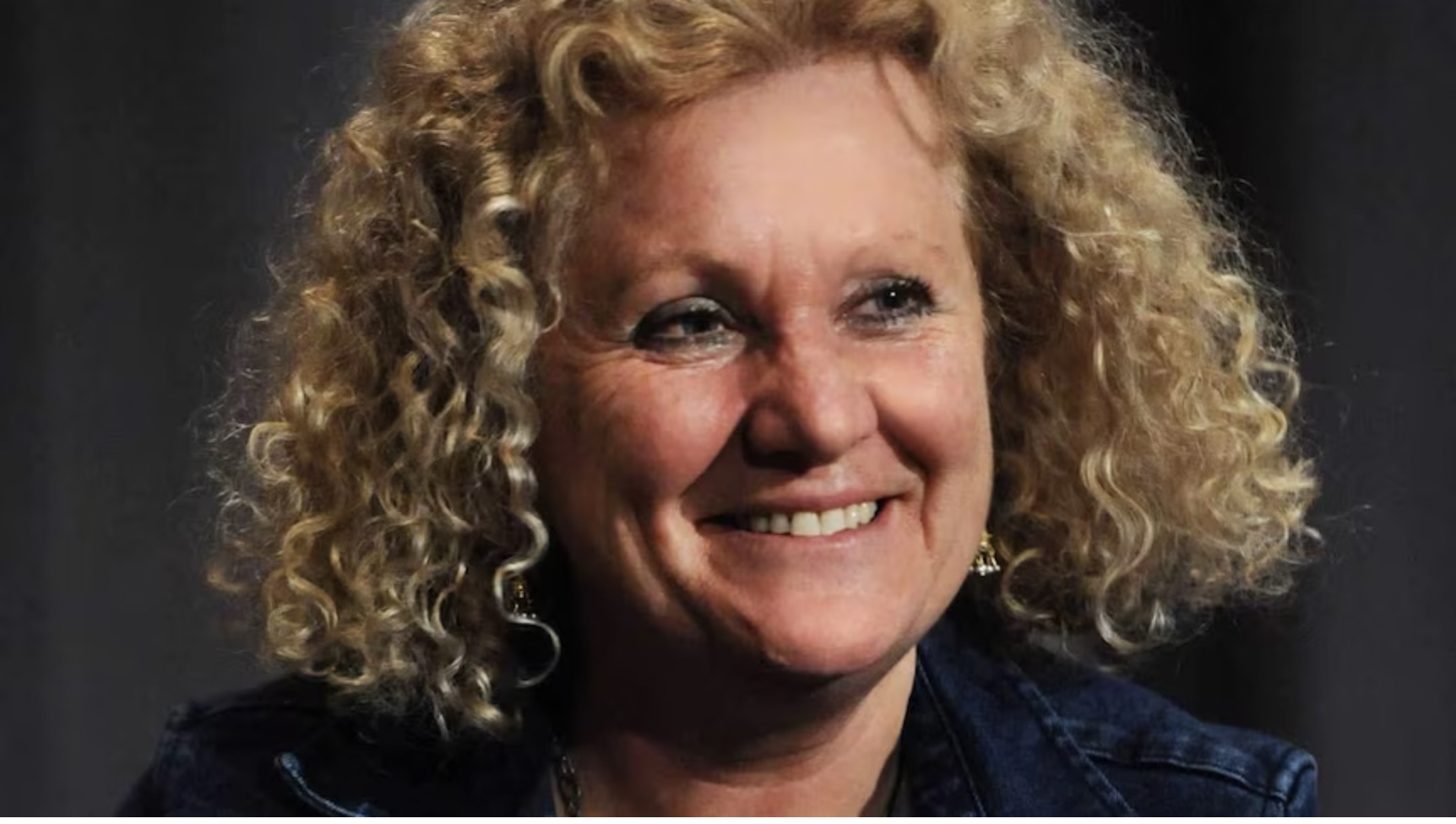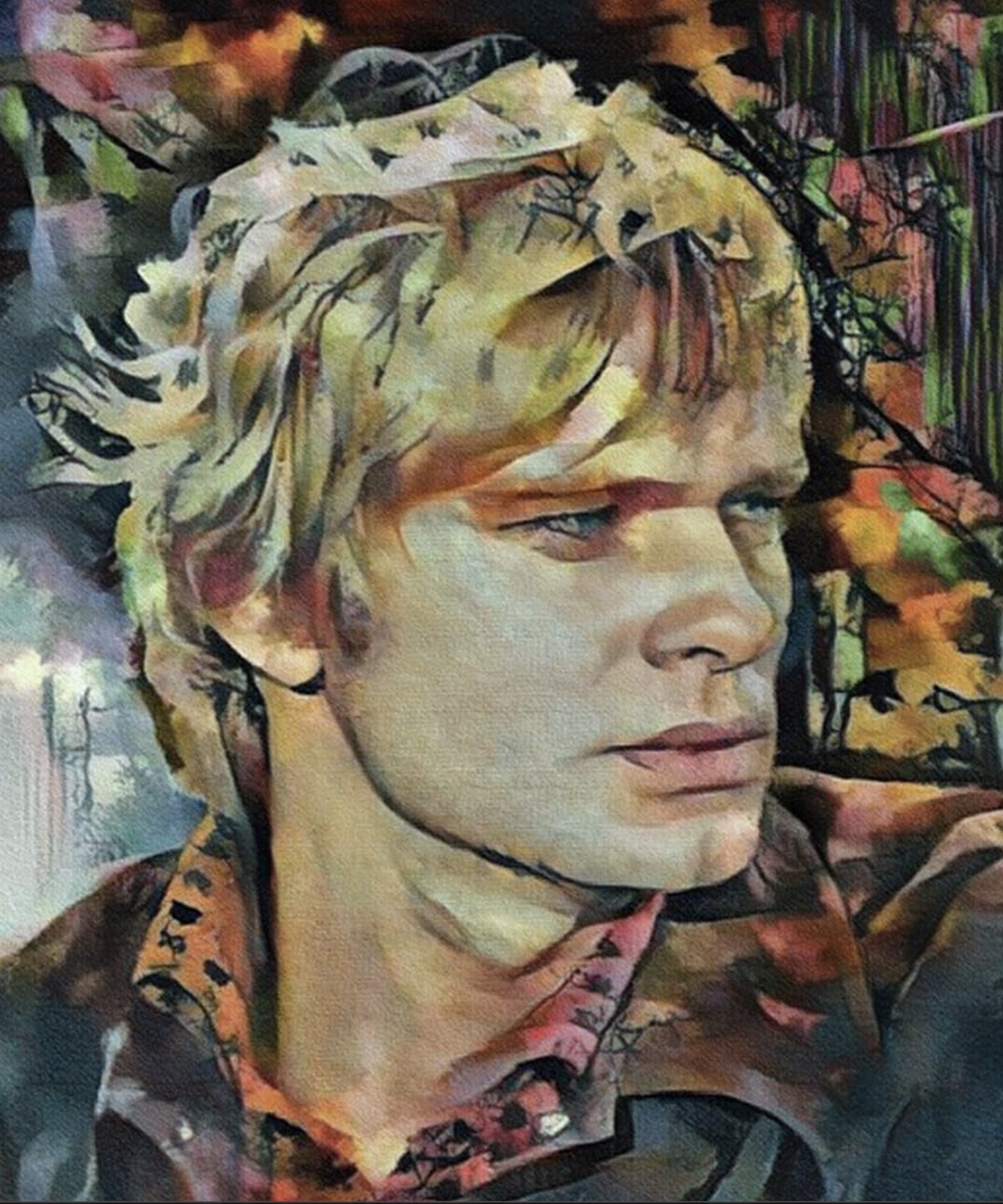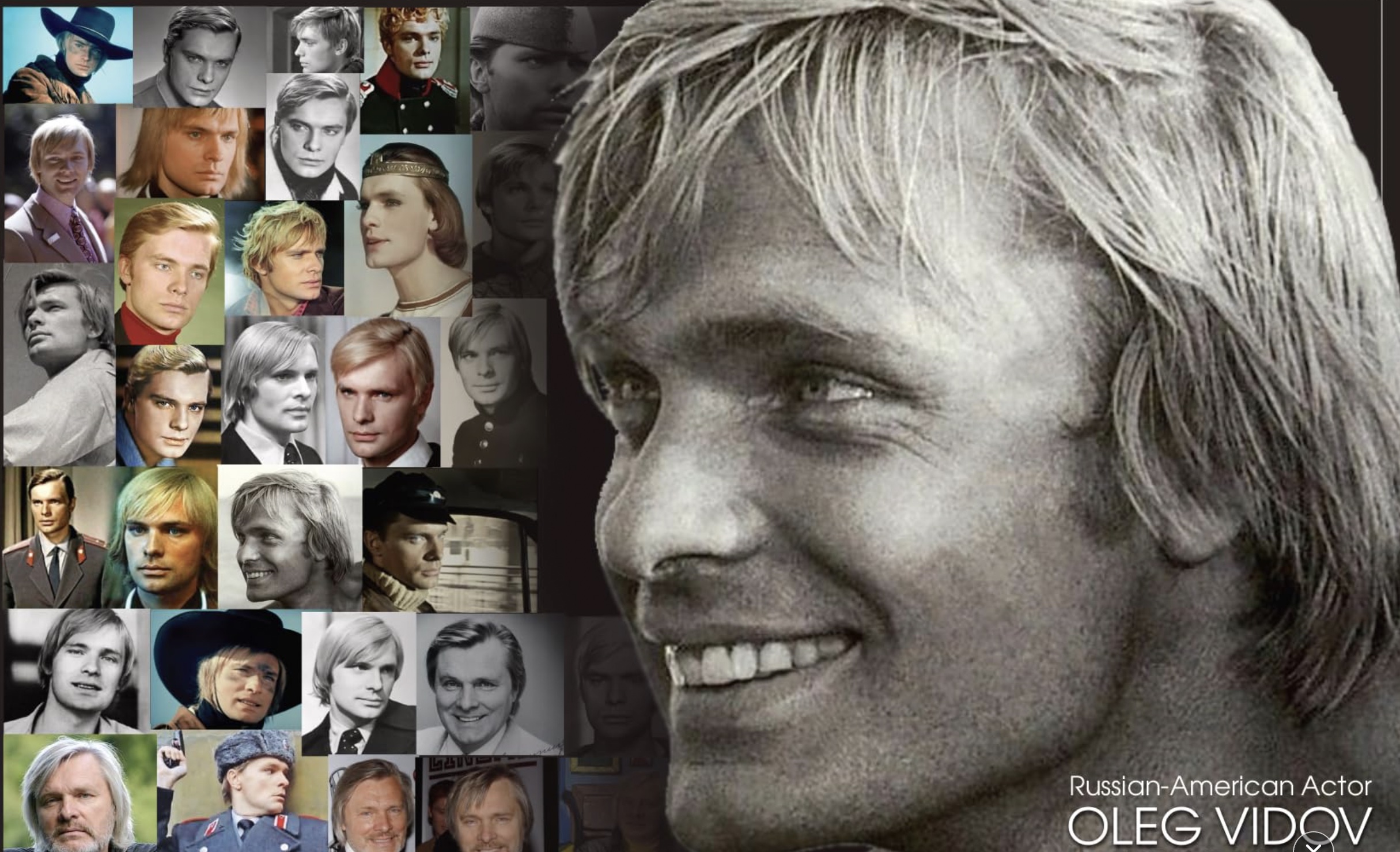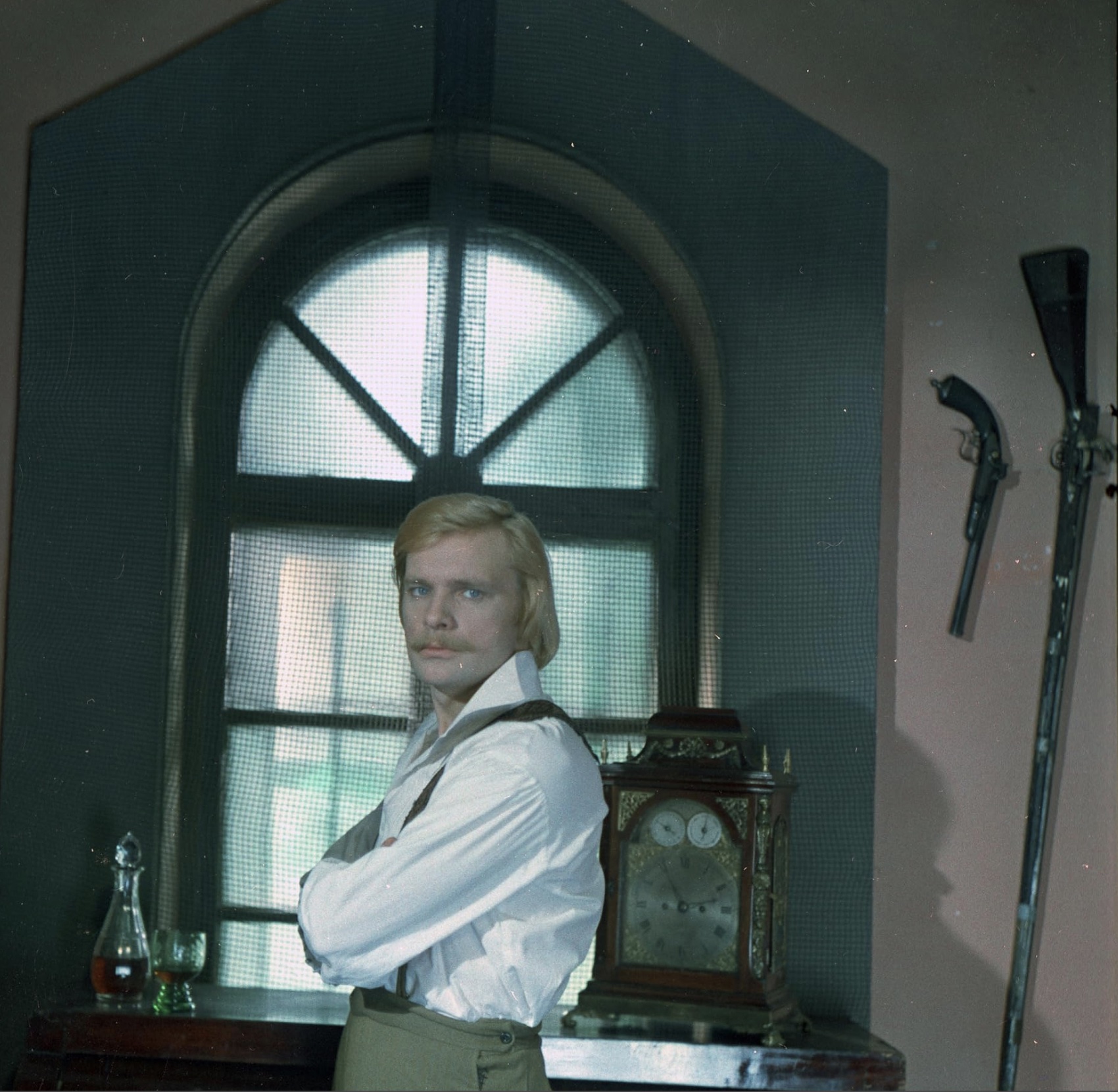Andrew L. Urban
Q: What do Succession star Brian Cox and Australia’s filmmaker Nadia Tass, of Malcolm* and Amy* fame, have in common? A: Oleg Vidov.
Cox narrates Tass’ 97 minute documentary about the late Oleg Borisovich Vidov (1943-2017), once the Soviet equivalent of Robert Redford, both in looks (sorta) and in talent. The promo tag reads: Soviet Film Star. Defector.

Nadia Tass
Tass was “flabbergasted” at the many American university campus preview screenings of her biopic of Oleg. The students had come to see the film attracted by the outline of the handsome star’s dramatic life story, but what stunned Tass was the revelation during the Q&As of their utter ignorance about the real nature of the USSR – and why Oleg decided to defect to the west in 1985. “They had an idealised vision of the place. They didn’t know Russians were not allowed to leave the country, to travel…” or that party officials had privileges and luxuries not available to the masses, who “had to line for bread”.
“And so I thought, oh my God, this is important not only because he was my friend, I adored him and his wife, Joan, we were really a great trio. But because of the information that it gives the young people who don’t know about it.”
And even in today’s Russia, says Tass, “There are people still lining up for bread, people trying to escape. I have relatives who’ve escaped, yes, and gone to Turkey. And now they’re living in Turkey. And they’re afraid to get out of their apartments because they don’t know what’s outside.”
Our eternal search for freedom and equality, says Tass are the central themes that emerge in the documentary about Oleg’s life. That, and the realisation that universities have failed to teach that crucial part of recent world history that reveals the true nature of Soviet communism.
Born and raised in the Greek part of Macedonia, Tass recalls being torn between two opposing political sides of her family: one side was profoundly anti-Soviet, the other profoundly pro-Soviet. That experience clearly informs her interest in Olag’s story, who she had come to know over the many years she knew the man, and his American journalist wife, Joan Borsten. It was through their friendship that Tass had first met Oleg. (Borsten invited Tass to make the film and is credited as producer.)
When Tass approached Brian Cox to narrate the film, she could not know that she had stumbled on the most appropriate actor. She just felt he was right for it. Cox turned out to be a dedicated Russophile; he lived there for two years and his daughter lives there. (It also turned out that his manager and hers are best of friends.)

Oleg in art
What really attracted Cox was a key aspect of Oleg’s work after his defection: the story of how Oleg, his wife Joan and famous Russian ballet dancer Mikhail Baryshnikov, joined forces to rescue some iconic Russian animation from the dust heap of history. Oleg was anxious to show the world that “we are not all KGB”; he wanted to show that Russia had culture, music, theatre, literature.
Tass tells how Baryshnikov refused to allow outside crew to film his contribution, due to Covid concerns at the time with his family around, so Tass persuaded the dancer’s wife Lisa to be the camera operator.
That was just one of the work-arounds needed to produce a film during Covid, and across several continents. Brian Cox was in Upstate New York, as were the Baryshnikovs, while Tass was asking the questions in South Yarra. It was something of a technical challenge, especially to get the sound right.
Tass even directed the opening scenes ‘long distance’, a re-enactment of Olag’s defection on the then Austrian-Yugoslav border shot in Slovenia. “I rehearsed it and did everything from my little study in South Yara; there were four screens around me and I was communicating with all these different entities and looking at the screen and thankfully I do have, you know, Slavic as my base language so I was able to communicate with the actors and my first AD, who was great. I’ve never met these people. I think the fact that I could speak the language was really an amazing advantage because instead of us being so distant, it became familiar.”
It is from the same ‘little study’ in South Yarra that Tass speaks to this writer in Sydney.

Apart from that re-enactment at the beginning of the film, the documentary makes good use of clips from Oleg’s films (he made 50) and footage of him in a variety of situations. These are edited into a cohesive film that benefits from Brian Cox’s authoritative tones. His is not the only voice: Tass had seen and was impressed by Costa Ronin in The Americans (Primetime Emmy winning TV series set in the Cold War, 2013-2018) and she “heard Oleg’s voice”. Sure enough, Ronin happily accepted the role of Oleg’s voice, used in passages where Oleg speaks. “He really understood Oleg and Oleg’s life.”
Then there are the many interview subjects, such as history professor Graeme Gill, who add texture and context. The vast amount of research that went into this documentary is reflected in the crowded end credits.

Oleg in a scene
For Tass, the film is an opportunity to champion personal freedom through Oleg’s life story, reflecting this essential human need. “I look at today and I see the same thing. I see freedom being completely unavailable, denied to the majority of the people living in … well it’s everywhere really up there, you know, Georgia, Russia, everywhere and it’s run by one madman and I can’t bear it.”
*Malcolm (1986) starring Colin Friels won five AFI Awards including Best Film, written by David Parker and directed by Nadia Tass – her debut feature.
*Amy (1997) starring Rachel Griffiths, Ben Mendelsohn, Alana De Roma; nominated for Best Actress and Best original Screenplay AFI Awards, among other nominations and wins, written by David Parker and directed by Nadia Tass.
- Oleg: the Oleg Vidov Story will premiere on SBS TV & SBS On Demand on June 24, 2024 at 3:10pm.
Andrew L. Urban was editor and publisher of Australia’s award winning online movie magazine, urbancinefile.com.au 1997-2017, now archived by the National Library of Australia.

Lynn, a week ago, presented me with a book from her library: ‘The Siege of Leningrad’, by Harrison E. Salisbury. Still on ‘term break’ till the morrow … I can’t put it down. Inch by inch, hour by hour, Salisbury documents in detail much about about the German attack on Russia and about the Russian resistance … principally as it related to Leningrad, formerly Petrograd, but firstly, as it first was named: St Petersburg … Now, once again, its citizens by referendum have chosen to revert to its originalname: St Petersburg.
As I’m reading (I’m at p153 of 583 pages, with a further 50 pages of Source notes, Bibliography and Index. The text itself is generously supplemented with bottom-of-page footnotes), …
…it seems to me that the book provides ample justification for democratic systems of government, highlighting how it does the impotence of Russian officials – their inability to act against the Nazi invasion unless ‘Moscow’ had cleared or had ordered it. Those who followed Moscow’s delayed or inadequate orders – without success – were subsequently shot. So many were…
Stalin was at the top. He presents a clear example to history as to the lie in Marx’s ‘Dictatorship of the Proletariat’ … for some, ‘of the proletariat‘ meant ‘by the proletariat. For the many, however, in truth, it resulted in the many being dictated to by the Party and by the Dictator and resulted in being treated cruelly.
For sure, (for comment brevity), I’m leaving out the particulars of the many of Stalin’s (and his henchmen’s sins). They are too many to even begin to recount, here.
So to with Mao Tse Tung, and Adolph Hitler.
Your father must have been aware of this work by Salisbury?
[Salisbury also notes in his work: the Russian war against the Finns, and the annexation of Lithuania, Estonia and Latvia].
The book was first published in hardcover in 1969 as The 900 Days: The Siege of Leningrad, so there is a strong possibility that yes, my father was aware of it. My father’s book, published in 1957 in the wake of the Hungarian Revolution, the subject of his book, is titled The 19 Days. How about that !
I had not heard of Oleg Vidov until I read this article. Having visited Russia twice and travelled on their trains, I felt I understood the positive and negative about this country. The words that resonated for me were “Oleg was anxious to show the world that ‘We are not all KGB; he wanted to show that Russia had culture, music, theatre, literature’. Those are the aspects I love about Russia. In my own words, I could say, “I am anxious to show the world that the people of Russia are not all Intourist.” The ordinary person is as kind, helpful, friendly as anyone else on earth. I think of myself sitting at a table, chatting with a group of lovely people, with a samovar in the middle.
I can imagine sitting at that table with you, Lynn !
I’m so glad Lynn has seen the whole of your article … including that bold portrait of Vidov (shown above).
Lynn needs a biographer who knows well their craft. Lynn has much in the way of memory: her many stories to tell and more than that: many, many records:
-a ‘singular’ childhood from Tas to Melbourne
-a time of supporting ‘Rascals’ in PNG and of marriage and birth
-a return to Tas & the first woman to work in a Tassie prison
-two wonderful daughters
-her early and continuing support for Sue Neill-Fraser
-her loving husband, Richard, now passed on, gone to the ‘greener pastures’ of Upper Pontville.
If you knew someone, Andrew, who would tackle such a job, I’d be willing to assist.
Garry Stannus.
–
Preferably a writer in Hobart …
Thank you for this.